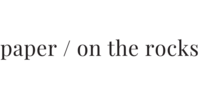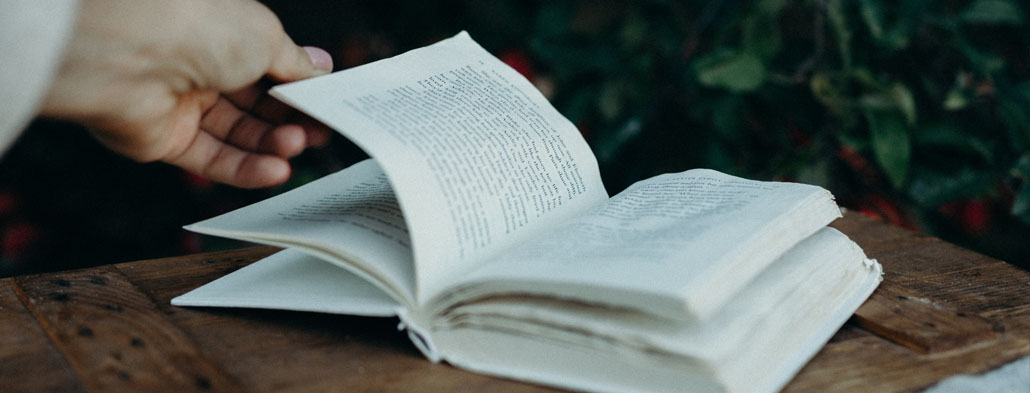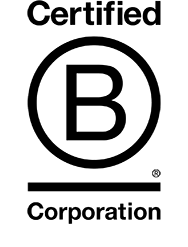Five Books on Biodiversity: Recommendations to Understand the Crisis Better
Paper on the Rocks’ founder, Anne Pleun van Eijsden, shares her top five reads to bring us hope and inspiration, and to help us through these uncertain times.
Last month a report by the UN was released that should have sent a shockwave through our societies. As the Guardian stated: ‘Human Society under urgent threat from loss of Earth’s natural life.’ That is quite a bold statement, but it might be time to acknowledge that 450 scientists and diplomats, going over 15k academic reports and combining their conclusions, are quite possibly on the right end, sadly.
Never a bad time for hope
Over the past years of working in the environmental business-field, I’ve read a lot of bad-news reports. Alarming articles. Depressing conclusions. I’ve come to realise that the challenge on top of the challenge for a lot of people (myself included) is to not become lethargic in the face of all this bad news. Because it is very possible that we will have to deal with a new normal on planet Earth. And that isn’t going to come easy. So I have been trying to find a way to cope, and to keep hope alive. Because as they say, ‘where there’s life, there’s hope’. The reverse will hopefully (pun intended) be true as well.
Words
What really helps me to make sense of the current state of the world, is to search for answers in my favourite types of books – history, sociology and literature. I love language in itself, I love words, writing, and the fact that we as a species have become so skilled at sharing our knowledge and our emotions and life lessons – sometimes in the same text.
Therefore, I would like to recommend to you the following five books that I’ve read recently. I will provide a short summary, and the way the book enlightened me personally.
Five books to help you better understand our biodiversity crisis
1. The Wizard and the Prophet, by Charles C. Mann (one of my favourite authors)
A book about the two schools of thought in environmentalism. On the one hand, the Wizards (so to say ‘founded’ by twentieth-century scientist Norman Borlaug) believe that with technology and further development of our societies, we as humans can design a world that holds all of us in relative prosperity. On the other hand there are the Prophets (William Vogt laid the framework for this school of thought) who believe we should give nature a break and live with less, use natural resources wisely, and save them as much as possible.
I found this book very interesting, because it shifted my perspective a little bit. I always thought I could solely be found in the Prophets’ school of thought. We are destroying our natural world, and that is not our place. We are guests here, and should act accordingly.
However, during my read, I came to find that I am also partly in favour of the Wizard school. Also a little out of sheer necessity, but it helped me place my thoughts in an almost philosophical framework and to reason about the topic at hand – what will our future look like, and how will we deal with our place on Earth?
2. The Overstory, by Richard Powers (Winner of the 2019 Pulitzer Prize in Fiction)
A beautiful novel about trees. Yes, trees. It is so well written that I can not put it down (haven’t finished it yet and am a little hesitant to do so, I love me some great literature). It chronicles through the ages. The book connects you to trees in a remarkable and soothing, yet distressing way. I can hardly put this into words myself, but just go read it. It will make you feel sad, but at the same time feel lucky about the wonderful ways in which the environment in which we live (still) lives.
3. Let my people go surfing, by Yvon Chouinard
I’ve written a whole post about this book, because it inspired me so much. Part memoir, part business advice from Patagonia’s founding father (the outdoor and clothing company). This book gave me some extra courage to use my business as a force for good, but also to put human life in perspective, and always give making the world a better place your all, regardless.
4. Project Drawdown, edited by Paul Hawken
If you’re talking about hope, place this book on a bookshelf and glance through it every other day or so. Every page is filled with hope. The book lists 100 measures to cool our Earth, and at the same time restore entire ecosystems and, quite possibly, our future. Not a book necessarily to sit down with (for that I would refer back to my second book suggestion), but definitely worth a read for a daily shot of hope.
I have come to believe, that climate disruption actually goes hand in hand with global inequality. If we don’t solve global inequality, we will never be able to properly face the issues that were highlighted in May’s UN report. And this book by Hickel is one of the best books about this topic I’ve read so far. It is on this list because sometimes opting for a book that seems a little out of your comfort zone (e.g. business or environmental topics) gives the inspiration boost necessary to keep pushing on for change. This book did just that for me.
I can’t count on two hands the times I’ve gasped aloud at the atrocities described in the book. The sheer unfairness, how blind we seem to be for the faults in our system. How have we been unable to turn the tide for such a long time? The book is quite unique in the fact that it motivates you to try and do just that. And as said, that goes hand in hand with solutions towards a healthy environment for one and all.
Keep on keepin’ on
To feel angry, sad and depressed by the news regarding the biodiversity crisis which seems all but fair to me. We’re all humans, we all need to cope and keep hope alive, together. I just wish that one of these books might be able to provide you with just one piece of wisdom to continue on your path to keep the world a healthy and lively place to live in all its diversity.
Please, feel free to share a book that inspired you lately on the topic of hope!
All my best, Anne Pleun
(Originally posted on LinkedIn)
Go to our mission to understand more about the methods we use to combat this problem.
Photo by Liana Mikah


